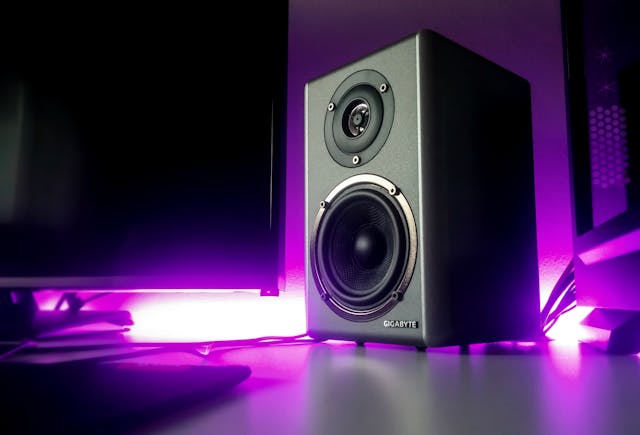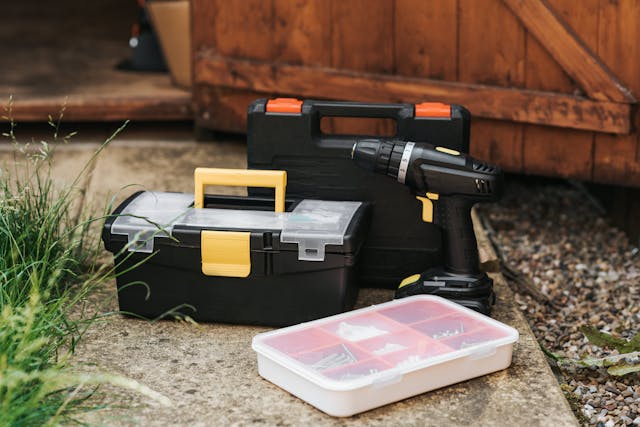
Ensuring resident satisfaction is crucial for maintaining a successful rental property. Addressing common complaints promptly and effectively can lead to happier residents, fewer vacancies, and a more positive reputation.
This article put together will cover the most common complaints from residents and provide practical solutions for each. By understanding these issues and knowing how to handle them, you can improve the overall living experience for your residents and streamline your property management processes.
Common Tenant Complaints and Effective Solutions
Managing Complaints About Noisy Neighbors
Noise complaints are one of the most common issues that landlords find themselves having to address. Whether it's loud music, parties, or general disturbances, excessive noise can disrupt the peace and comfort of other residents. These disturbances can lead to conflicts between neighbors, which might escalate if not addressed promptly.
Additionally, unresolved noise issues can result in residents choosing to move out, leading to higher turnover rates and increased vacancy periods. It's essential to take these complaints seriously and implement strategies to mitigate noise problems effectively.

Tips for Solving Noise Complaints
- Establish clear noise policies. Include specific noise regulations in the lease agreement. Specify quiet hours, typically between 10 PM and 7 AM, to set expectations for acceptable noise levels.
- Communicate with the residents. When someone makes a noise complaint, address it immediately by speaking with the offending resident. Often, they may not be aware that they are causing a disturbance.
- Mediation. If the issue persists, consider mediating a meeting between the involved parties to discuss the problem and find a mutually acceptable solution.
- Use soundproofing measures. In chronic cases, consider soundproofing measures such as adding carpets, curtains, or noise-reducing insulation to minimize sound transmission between units.
- Enforcement. Consistently enforce noise policies and consider including penalties for repeated violations in the lease agreement.
Addressing Maintenance Issues
Maintenance-related complaints are common and can range from minor repairs to significant issues that affect the habitability of the property. Delays in addressing these types of problems can lead to resident frustration and strain the landlord-resident relationship.
Frequent maintenance problems can also damage the property's reputation, making it harder to attract new residents. Regular property maintenance and prompt response to complaints are crucial for maintaining property value and resident satisfaction.

Tips for Solving Maintenance Issues
- Prompt response. Respond to maintenance requests quickly. Acknowledge to the resident that you received their request and provide an estimated timeframe for the resolution.
- Regular inspections. Conduct regular property inspections to identify and address potential issues before they become major problems. This proactive approach can help prevent many maintenance complaints.
- Hire reliable contractors. Work with dependable and professional contractors who can address repairs efficiently and effectively. Building a relationship with reliable service providers ensures timely maintenance work.
- Maintain an emergency plan. Have a clear plan for emergency maintenance issues, including after-hours contact information and procedures for handling urgent repairs such as plumbing leaks or electrical problems.
- Documentation. Keep detailed records of all maintenance requests and repairs. This documentation can be helpful if disputes arise regarding the condition of the property or the timeliness of repairs.
Dealing with Pet-Related Issues
Pets can bring joy to many residents but can also lead to complaints related to noise, allergies, and property damage. Some residents may be allergic to pet dander, leading to health concerns and discomfort.
Pets can also cause wear and tear to the property, such as scratched floors and chewed furniture. Balancing the needs of pet owners with those of other residents is essential for maintaining harmony in the community.

Tips for Solving Pet-Related Issues
- Clear pet policies. Include specific pet policies in the lease agreement, detailing the types of pets allowed, size and breed restrictions, and the number of pets permitted per unit.
- Pet deposits and fees. Require a pet deposit or additional monthly fee to cover potential damages caused by pets. This financial measure can help offset the cost of repairs and cleaning.
- Designated pet areas. If possible, create designated pet areas on the property, such as dog parks or pet relief areas. This can help minimize damage to common areas and ensure pets have a space to exercise.
- Regular inspections. Conduct periodic inspections of pet-friendly units to identify and address any issues early, such as damage to flooring or excessive odors.
- Enforce rules. Consistently enforce pet policies and address violations promptly. This helps maintain a balance between pet owners and other residents who may be affected by pet-related issues.
Handling Pest Infestations
Pest infestations can be cause for concern for residents and can negatively affect their quality of life. Common pests include ants, bedbugs, cockroaches, and rodents. These pests can cause health issues, damage property, and create an uncomfortable living environment.
If left untreated, infestations can spread quickly, affecting multiple units and becoming more difficult to control. Addressing pest issues promptly is essential to maintain a safe and habitable property.

Tips for Solving Pest Infestations
- Preventative measures. Implement preventative measures such as sealing cracks, maintaining clean common areas, and ensuring proper waste disposal. Schedule property periodic inspections and look for signs of pests.
- Professional extermination. Hire professional pest control services to address infestations promptly and thoroughly. Regular pest control treatments can help prevent infestations from occurring.
- Resident education. Educate residents on how to prevent pests, such as keeping their units clean, storing food properly, and reporting any sightings of pests immediately.
- Respond quickly. Address pest complaints immediately. Delayed responses can lead to the spread of the infestation and increased dissatisfaction among residents.
- Follow-up inspections. After treatment, conduct follow-up inspections to ensure that the infestation has been fully eradicated and take additional measures if necessary.
Bottom Line
Addressing common resident complaints effectively is key to maintaining a positive rental experience and reducing turnover. By managing noise complaints, responding promptly to maintenance issues, handling pet-related problems, and preventing pest infestations, you can ensure a comfortable and enjoyable living environment for your residents.
Compass Property Management can assist landlords in managing these common issues. With professional property management services, we ensure that complaints are handled efficiently and effectively, allowing landlords to focus on growing their investments.
Our expertise in property maintenance, resident communication, and problem-solving can help create a harmonious living environment, ultimately leading to satisfied residents and a successful rental property. Get in touch with our team today!
